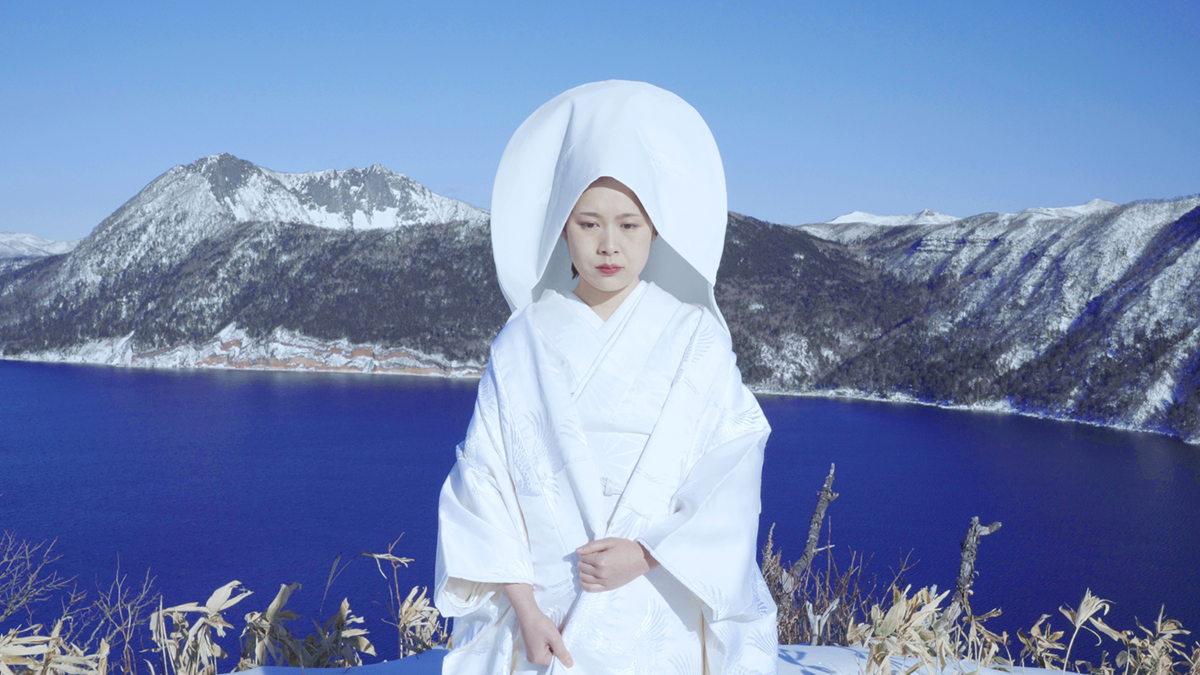Special Screening and Artist Talk: Soni Kum's Morning Dew

About the Artist
Soni Kum is an artist. She works across a variety of media, including film and video, installation, performance, writing, photography, drawing and dance. Kum is a third-generation Zainichi Korean who was born and raised in Tokyo. Her work has been exhibited at numerous art spaces and film festivals around the world, which include the USA, Japan, Korea, Brazil, Denmark, Germany, Philippines, China, Cuba, UK, and Myanmar. Her recent projects include Morning Dew: A collaborative project between the artist and ex-“returnees” who defected from North Korea to Japan, funded by Kawamura Arts and Cultural Foundation Socially Engaged Art Support Grant.
About the Artwork
From 1959 to 1984, more than ninety thousand Zainichi Koreans (ethnic Korean residents in Japan) were repatriated by the Japanese and North Korean government to North Korea, a program of deportation that was couched as a humanitarian effort but was driven by Cold War politics. The so-called “returnees,” convinced they were moving to a “paradise on earth,” faced a harsh reality in North Korea that compelled some of them to defect. Those “ex-returnees” now living again in Japan hide the fact that they defected from North Korea due to fear of ongoing discrimination within the Zainichi community and worries for their relatives who remain in North Korea. Stigmatized as having been “brainwashed” by the totalitarian North Korean government, they live an invisible existence in Japan.
Soni Kum’s three-channel video Morning Dew (2020) takes its title from a popular 1980 protest song by Kim Min-Gi. Whether in the context of the artist’s having learned the song as a child in a Chongryon (North Korean) elementary school in Toky, or as part of the pro-democracy movement in South Korea in the 1980s, the song’s multiple interpretations parallel the juxtapositions of historic film footage and live-acted scenes that the artist compiled to evoke the complicated emotions and experiences of former “returnees.” Without showing any of her interviews, the artist references violent abuses of power during Japan’s colonization of Korea, World War II, and the Korean War, as well as North Korean political propaganda, unsettling images of destruction, sweepingly beautiful landscapes, and footage of present-day Tokyo. Each of the seven sections of Morning Dew begins with a quote drawn from various sources including Aeschylus, Albert Camus, historian Bruce Cumings, Vladimir Lenin, an “ex-returnee” informant, and a Lakota Elder.
Event co-sponsored by:
Department of East Asian Studies, Graduate School of Arts and Sciences, NYU
Asian Film and Media Initiative in the Department of Cinema Studies, Tisch School of the Arts, NYU
Organizers:
Eimi Tagore-Erwin, PhD Candidate, NYU East Asian Studies
Kyle Nowak, PhD Student, NYU East Asian Studies